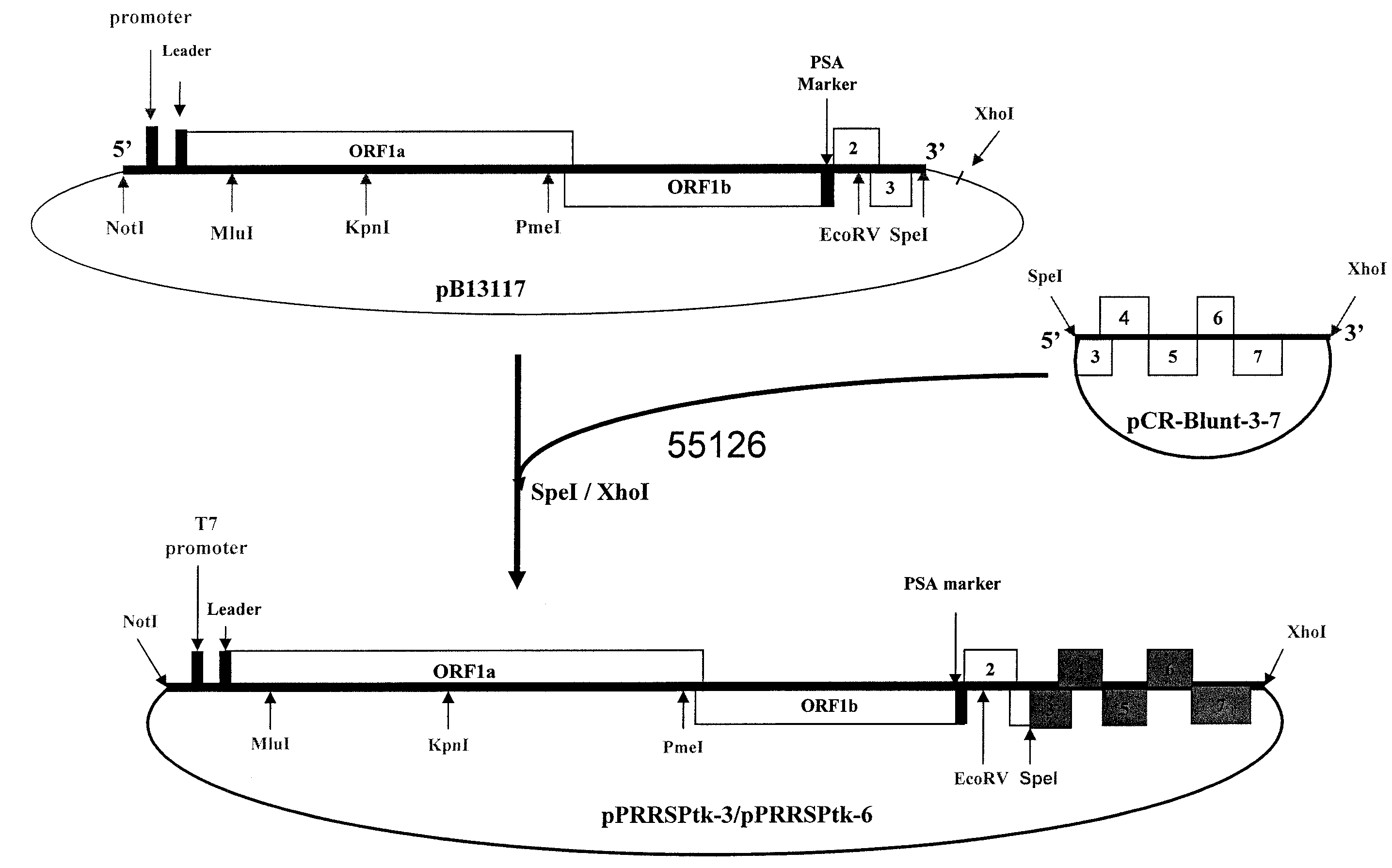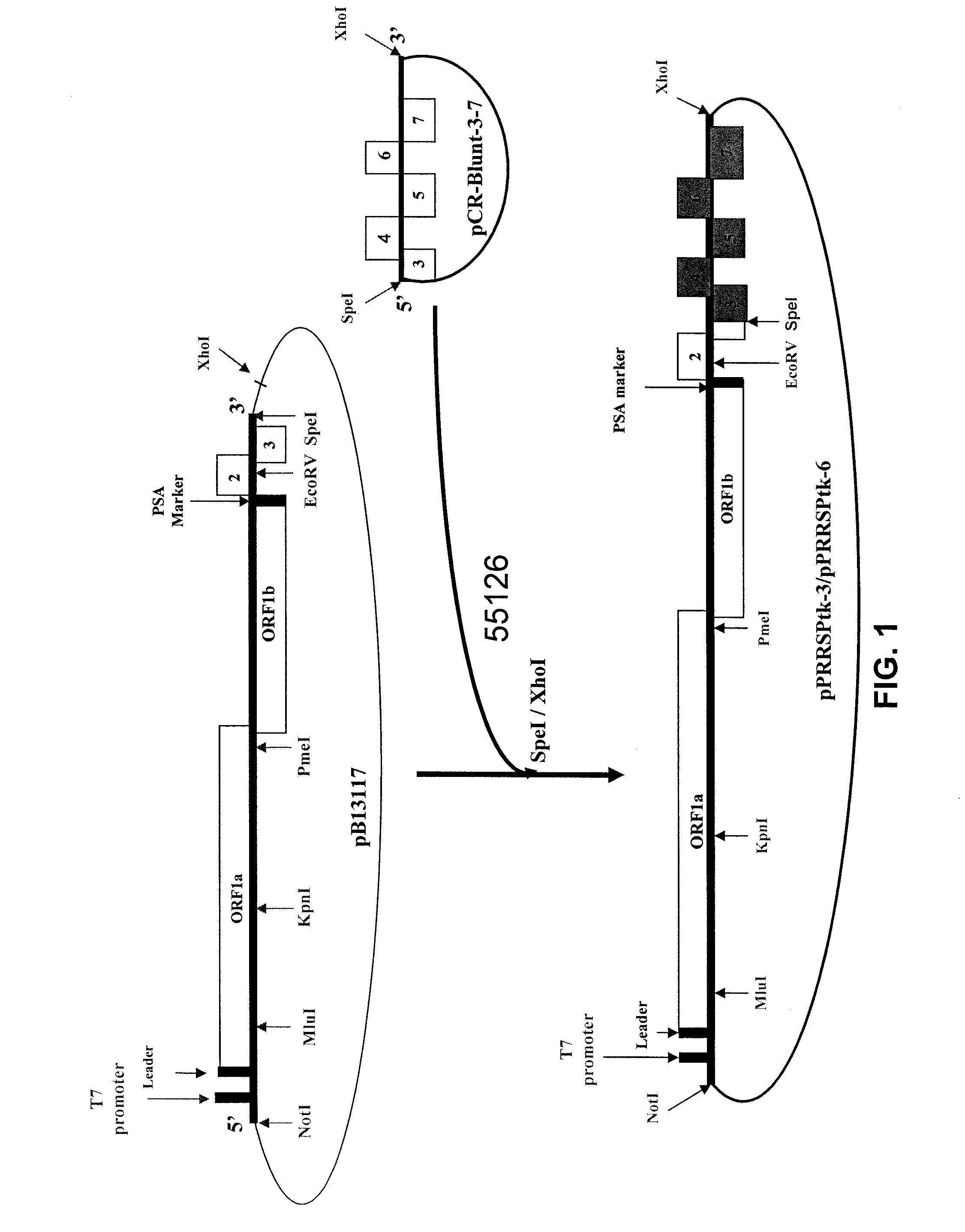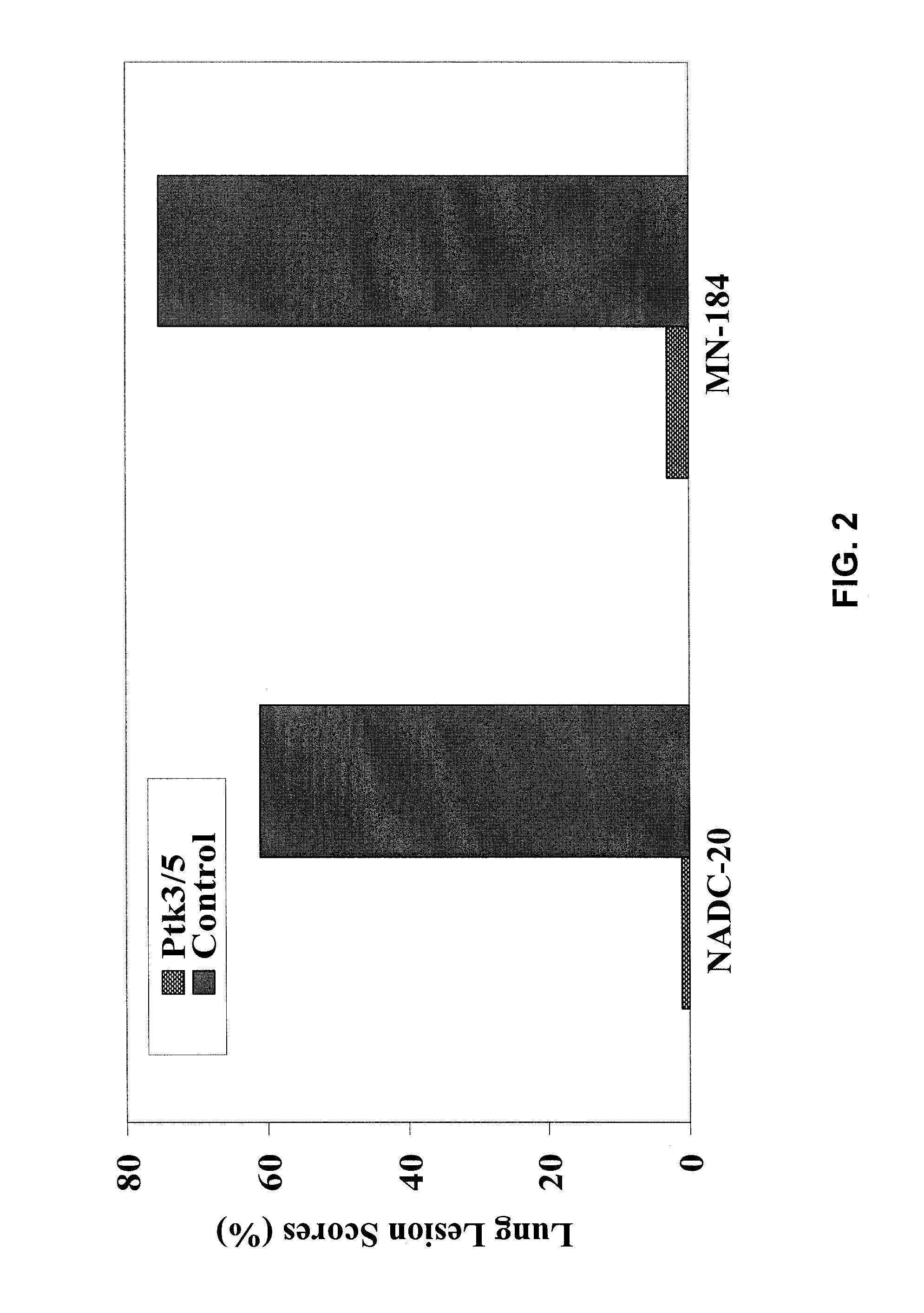Construction of chimera prrsv, compositions and vaccine preparations
a technology of compositions and chimera prrsv, which is applied in the field of chimera prrsv replicons, can solve the problems of complex efforts of prrsv to develop an effective vaccine, insufficient immunoprotection of available vaccines in vaccinated herds, and current vaccines that offer little protection against heterologous challenge by genetically diversified prrsv strains. , to achieve the effect of provoking a protective immune respons
- Summary
- Abstract
- Description
- Claims
- Application Information
AI Technical Summary
Benefits of technology
Problems solved by technology
Method used
Image
Examples
example 1
Addition of a Genetic Marker Sequence to an Infectious Avirulent PRRSV Clone
[0036]A genetic maker, PacI / SwaI / AscI (PSA) polylinker (SEQ ID NO: 3), was inserted into the viral genome between ORF 1b and 2 without altering viral gene expression to identify vaccine virus from field isolates of PRRSV. The ptkPRRS clone (SEQ ID NO: 1, from U.S. Pat. No. 6,841,364) was used to construct the modified viral genome. PCR amplification was performed using two primer pairs, SF7682 / PSA1R (SEQ. ID NO: 4 / SEQ ID NO: 5) and PSA2F / Sp2R (SEQ ID NO: 6 / SEQ ID NO: 7). Obtained PCR products were digested with restricted endonuclease PmeI / PacI and PacI / XhoI, respectively, and purified by an agarose gel. The ptkPRRS plasmid DNA was digested with PmeI and XhoI and purified by agarose gel. A ligation reaction was performed with digested plasmid DNA ptkPRRS, SF7628 / PSA1R fragment, and PSA2F / Sp2R fragment. The new recombinant infectious clone was called as ptkPRRS-1 (SEQ ID NO: 2), in which PSA polylinker is lo...
example 2
Subcloning of the 5′ Sequence of an Avirulent Strain of PRRSV (13117bp) into pBluescript SK(+)
[0037]A subclone from clone ptkPRRS-1 was constructed to remove the 3′ end of viral genome by using a unique restriction endouclease site Spel in ptkPRRS-1. Plasmid DNA of the clone ptkPRRS-1 was digested with NotI and SpeI and the 5′ end fragment containing ORF 1, ORF2 and partial sequence of ORF3 (13117 bp, SEQ ID NO: 10) was purified on an agarose gel. The purified fragment was cloned into plasmid vector pBluescript SK(+) (Stratagene, La Jolla, Calif.). This recombinant clone, designated as pB 13117, was used as a backbone to construct a chimeric infectious clone of PRRSV.
example 3
Subcloning of the 3′ Sequence of a Field Isolate Strain of PRRSV into Vector pCR-Blunt
[0038]QIAamp Viral RNA Kit (Qiagen, Valencia, Calif.) was used to extract viral RNAs from porcine serum or cell culture supernatants. Porcine serum or cell culture supernatants from viral infection and buffer AVL with carrier RNA were added into a microcentrifuge tube (560 μl of AVL buffer with 140 μl of sample; both are proportionally). After mixing by pulse-vortexing for 15 seconds, the lysis was incubated at room temperature for 10 min, and then 560 μl of ethanol was added into the sample. After briefly mixing, sample was loaded into column and centrifuged at 8000 rpm for 1 min (Repeat it until all lysis solution is loaded). The column with sample was washed orderly with AW1 and AW2 buffer. Finally, RNAs were eluted with the elution buffer and stored at −80° C. The First-strand cDNA was synthesized using the SuperScript II Reverse Transcription Kit (Invitrogen, Carlsbad, Calif.) with the anchor ...
PUM
| Property | Measurement | Unit |
|---|---|---|
| composition | aaaaa | aaaaa |
| viral compositions | aaaaa | aaaaa |
| body weight | aaaaa | aaaaa |
Abstract
Description
Claims
Application Information
 Login to View More
Login to View More - R&D
- Intellectual Property
- Life Sciences
- Materials
- Tech Scout
- Unparalleled Data Quality
- Higher Quality Content
- 60% Fewer Hallucinations
Browse by: Latest US Patents, China's latest patents, Technical Efficacy Thesaurus, Application Domain, Technology Topic, Popular Technical Reports.
© 2025 PatSnap. All rights reserved.Legal|Privacy policy|Modern Slavery Act Transparency Statement|Sitemap|About US| Contact US: help@patsnap.com



